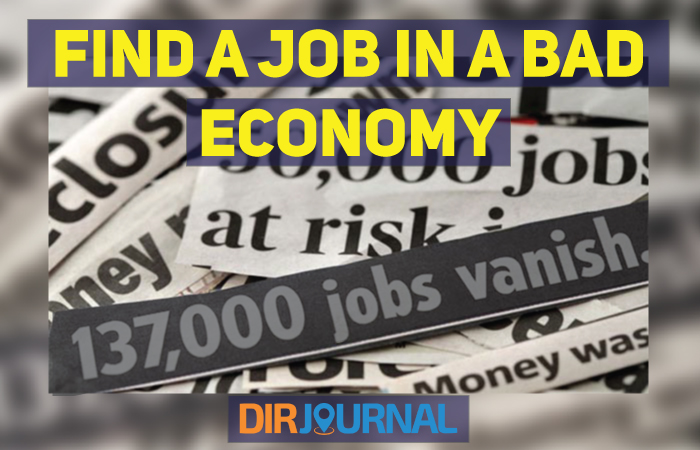The economy in the United States is causing great concern for everyday citizens around the world. While top level executives are walking away with millions from failed companies, investors and employees are facing hard facts about their investments, their careers and their future. When you find yourself under the axe, your career aspects are bleaker across the board and if you’re not prepared for the possibility of lay-offs, you can be a tight spot both in the short-term and long-term.
Jobs and Recessions
There is little doubt there is a huge correlation between jobs and the economy. When the economy dips, companies trim the fat on their budgets. Often, this means non profitable departments are cut along with nonessential personnel. Contractors, freelancers and others might find themselves out of work for one company where they were duplicates of actual employees who must now shoulder more work for the same salary. Freelance individuals might find also themselves with more work as companies opt to outsource work to contractors rather than pay employee benefits and salaries.
In a recession, many jobs will be lost and the jobs that remain will become more cumbersome. Some fields will remain the same or even grow, such as the medical industry, virtually undisturbed by the economic conditions. Your plan for a bad economy should reflect your career track, your skills and your initiative.
Jobseeker Qualifications
When you find yourself worrying about the economy or the well being of your particularly employer, remember that the best employees are usually the first to jump ship. Employees with contacts and skills that make them desirable in the industry are often sought after by competitors with firmer standing, and when the first sniff of trouble arrives, these employees are gone to the highest bidder.
To be one of the more desirable employees snatched up by competitors or just easy to hire for a company in a different sector, you should have:
• Clear and necessary skills
• Experience in a particular field
• Documented education and certifications
• Contacts within the industry
You should always be working to network and build contacts within the industry you choose to work in, as well as competing and complementing industries. These contacts can come in handy when you need to find a position now. The remainder of the qualifications are earned rather than created. This is where education comes into play.

Benefits of Education
While education can’t give you workforce experience, it can give you opportunities to start work in an entirely new career without the benefit of experience. If you recognize a need in your area for cable technicians, a few certifications classes can get you qualified to lay cable. While this is quite a switch from many office style careers, you don’t hear of cable technicians getting laid off. Skilled labor is hard to come by in a great economy, so it’s usually one of the best places to start your education in a bad one. You can learn a basic skill in a matter of weeks and use that skill to secure yourself a job. As you continue to learn and add skills to your initial one, you’ll be well on your way to a formal certificate or degree as well as a career in an area where you are sorely needed and unlikely to ever be asked to leave.
Education can give you an almost immediate skill as well as starting you on a new track. While you might learn a spot of welding to get you into a particular company, you can add more technical skills and management courses to your degree over time. When you finish your degree, the economy will likely have improved and you will have survived with a new career and now have a huge number of options as to how you want to use your new degree and extremely valuable experience in a particular field.
Seeking Opportunities
The most critical aspect to finding a job in a failing economy is going where the jobs are. This might mean physically moving to a new city or state, or it might mean doing research to determine what needs there are in your community for skilled and trained employees. Find an opportunity that interests you and immediately get to work earning the entry-level qualifications or adding to your current qualifications to be sure you are the most desirable applicant for the job.
In a bad economy, jobs won’t come to you – you must find them. For those who have used education to their advantage, this can be as simple as letting a few contacts know what skills and abilities you have and waiting for a conversation to start regarding a move to that company using your new skills as a catalyst for change.













